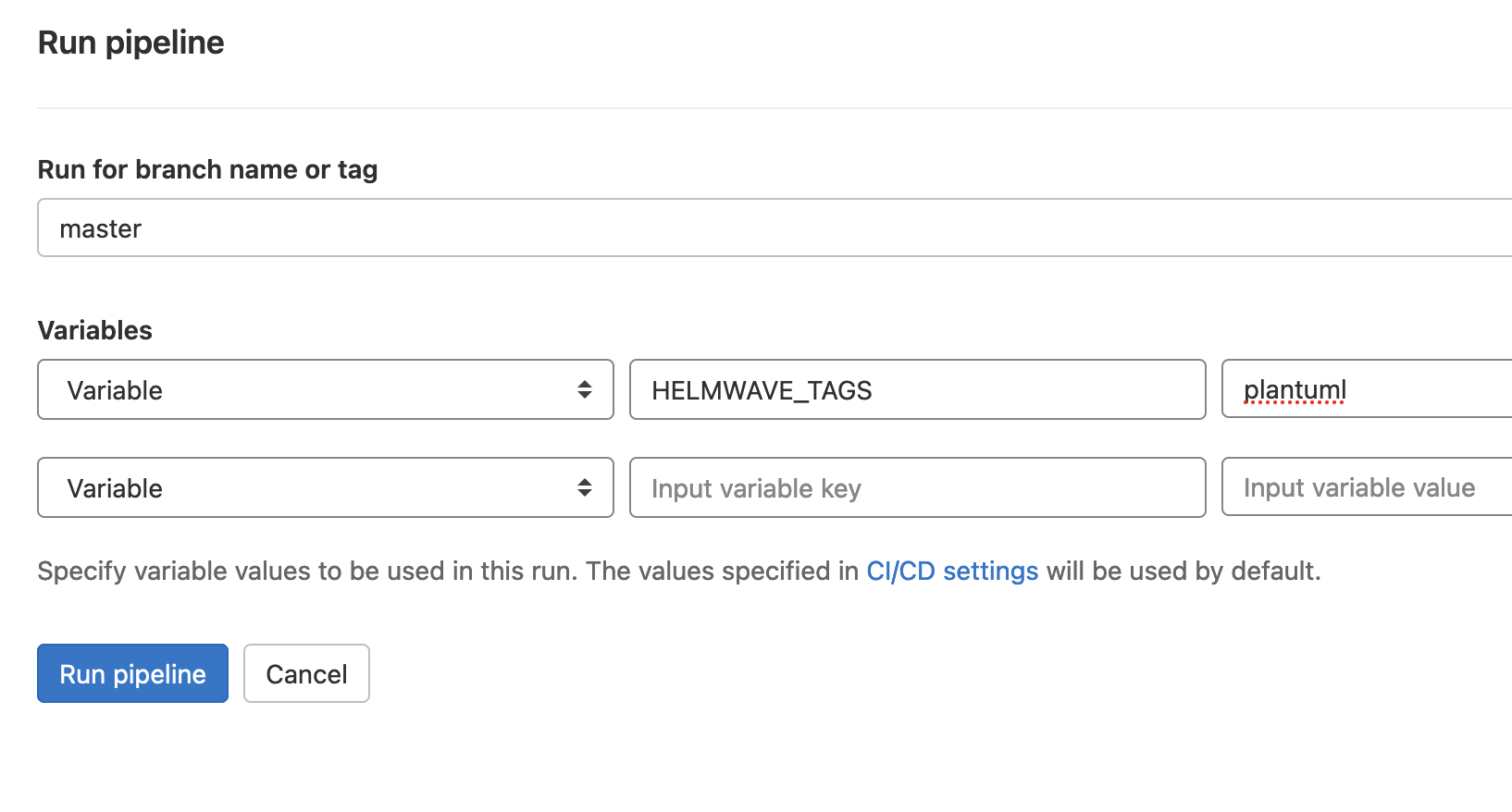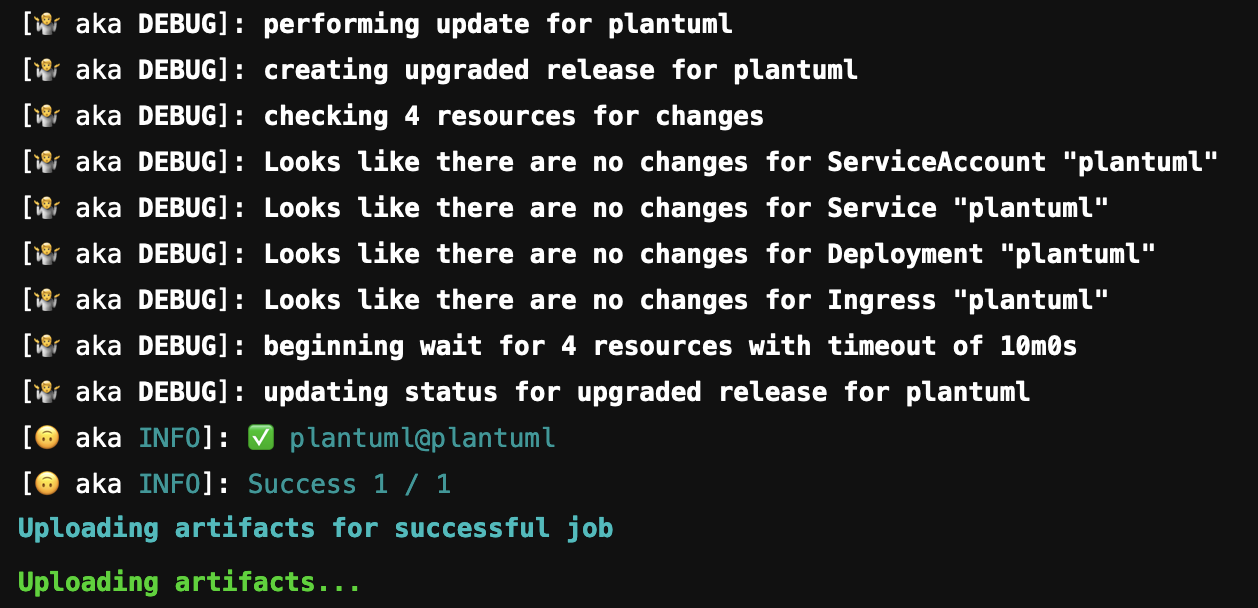Apps per namespace
If you want to install each application in your own namespace.
Create the project
Project structure
├── README.md
├── helmwave.yml.tpl
├── values
│ ├── harbor.yml
│ ├── minio.yml
│ ├── plantuml.yml
│ └── renovate.yml
└── vars.yaml
Step 1. Create helmwave.yml.tpl
version: 0.18.0
repositories:
- name: bitnami
url: https://charts.bitnami.com/bitnami
- name: renovate
url: https://docs.renovatebot.com/helm-charts
- name: stevehipwell
url: https://stevehipwell.github.io/helm-charts
# General options
.options: &options
wait: true
wait_for_jobs: true
force: false
timeout: 10m
atomic: false
max_history: 3
create_namespace: true
releases:
{{- with readFile "vars.yaml" | fromYaml | get "releases" }}
{{ range $v := . }}
#################################
# #
# {{ $v | get "name" }}
# #
#################################
- name: {{ $v | get "name" }}
chart:
name: {{ $v | get "repo" }}/{{ $v | get "name" }}
version: {{ $v | get "version" }}
namespace: {{ $v | get "name" }}
tags: [{{ $v | get "name" }}]
values:
- values/{{ $v | get "name" }}.yml
<<: *options
{{ end }}
{{- end }}
Step 2. Create vars.yaml
We will manage list apps with additional vars.yaml file
releases:
- name: harbor
repo: bitnami
version: 11.0.5
- name: minio
repo: bitnami
version: 9.0.2
- name: plantuml
repo: stevehipwell
version: 3.3.0
- name: renovate
repo: renovate
version: 25.76.1
Step 3. Render helmwave.yml.tpl -> helmwave.yml
helmwave yml
You will get it
version: 0.18.0
repositories:
- name: bitnami
url: https://charts.bitnami.com/bitnami
- name: renovate
url: https://docs.renovatebot.com/helm-charts
- name: stevehipwell
url: https://stevehipwell.github.io/helm-charts
# General options
.options: &options
wait: true
waitforjobs: true
force: false
timeout: 10m
atomic: false
maxhistory: 3
createnamespace: true
releases:
#################################
# #
# harbor
# #
#################################
- name: harbor
chart:
name: bitnami/harbor
version: 11.0.5
namespace: harbor
tags: [harbor]
values:
- values/harbor.yml
<<: *options
#################################
# #
# minio
# #
#################################
- name: minio
chart:
name: bitnami/minio
version: 9.0.2
namespace: minio
tags: [minio]
values:
- values/minio.yml
<<: *options
#################################
# #
# plantuml
# #
#################################
- name: plantuml
chart:
name: stevehipwell/plantuml
version: 3.3.0
namespace: plantuml
tags: [plantuml]
values:
- values/plantuml.yml
<<: *options
#################################
# #
# renovate
# #
#################################
- name: renovate
chart:
name: renovate/renovate
version: 25.76.1
namespace: renovate
tags: [renovate]
values:
- values/renovate.yml
<<: *options
Step 4. Build plan
helmwave build
Step 5. Deploy plan
if we want to deploy only plantuml
helmwave build -t plantuml
helmwave up
looks how to work HELMWAVE_TAGS
CI/CD with Gitlab-CI
variables:
HELMWAVE_LOG_LEVEL: debug
deploy to prod:
stage: deploy
when: manual
environment:
name: prod
image:
name: ghcr.io/helmwave/helmwave:0.17.2
entrypoint: [""]
before_script:
- printenv | grep HELMWAVE
script:
- helmwave yml
- helmwave build
- helmwave up
artifacts:
paths:
- .helmwave
expire_in: 2 week
if you want to deploy only plantuml via CI.

